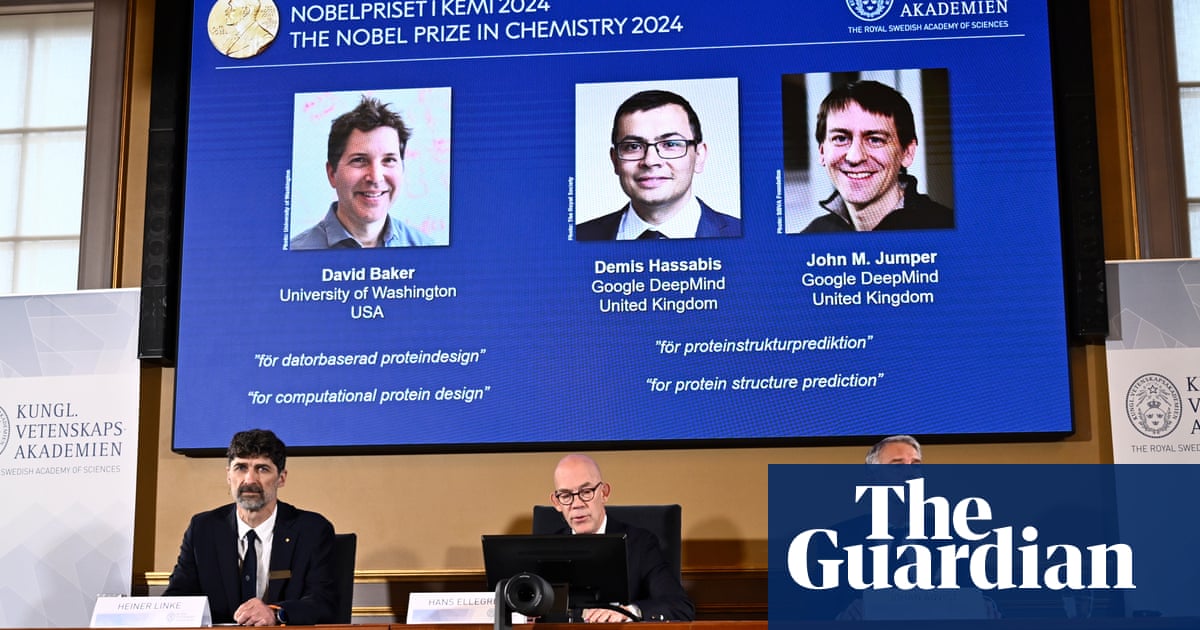 |
|
The 2024 Nobel Prize in Chemistry has been awarded to two scientists at Google DeepMind and an American biochemist for their groundbreaking work in predicting and designing protein structures. Demis Hassabis, DeepMind's founder, and John Jumper, who led the development of AlphaFold, a revolutionary AI model, share half of the prize. The other half was awarded to Professor David Baker of the University of Washington, whose computational research has enabled the creation of entirely new proteins with applications in vaccines, nanomaterials, and sensors.
AlphaFold, developed by DeepMind, has revolutionized the field of protein structure prediction. It utilizes AI to predict the intricate three-dimensional structures of proteins based on their amino acid sequences. This breakthrough fulfills a longstanding scientific ambition, as predicting these structures from their chemical sequences has been a formidable challenge for decades. The ability to predict protein structures has vast implications for understanding diseases, developing new drugs, and advancing our understanding of the fundamental building blocks of life.
Professor David Baker's research has focused on designing proteins that do not exist in nature. His team has achieved remarkable success in creating novel proteins with applications in various fields. These proteins, engineered from scratch, have the potential to revolutionize medicine, materials science, and numerous other areas. For example, Baker's work has led to the development of new vaccines and enzymes that can break down plastic.
The awarding of the Nobel Prize in Chemistry to Hassabis, Jumper, and Baker underscores the transformative power of AI and computational biology in advancing our understanding of the world around us. The ability to predict and design protein structures opens up a new frontier of possibilities in medicine, biotechnology, and materials science. The impact of their work will likely be felt for generations to come, shaping the future of science and technology.
Source: Google DeepMind scientists win Nobel chemistry prize
